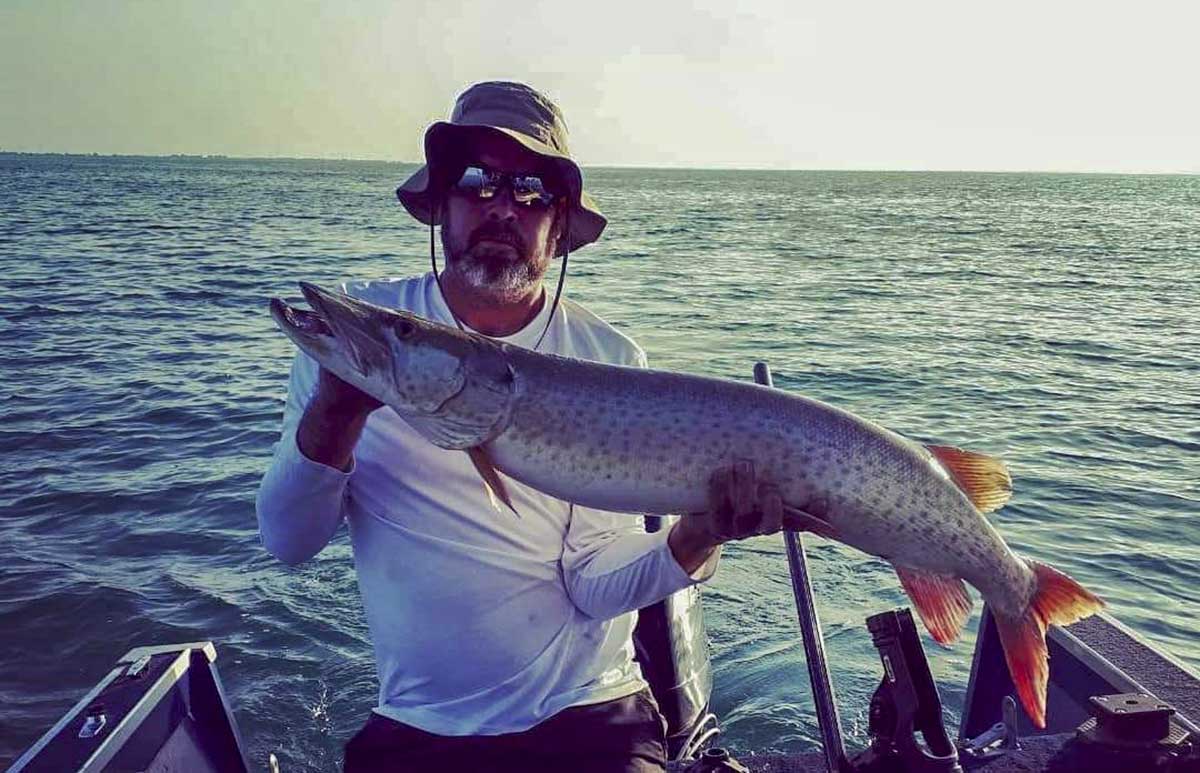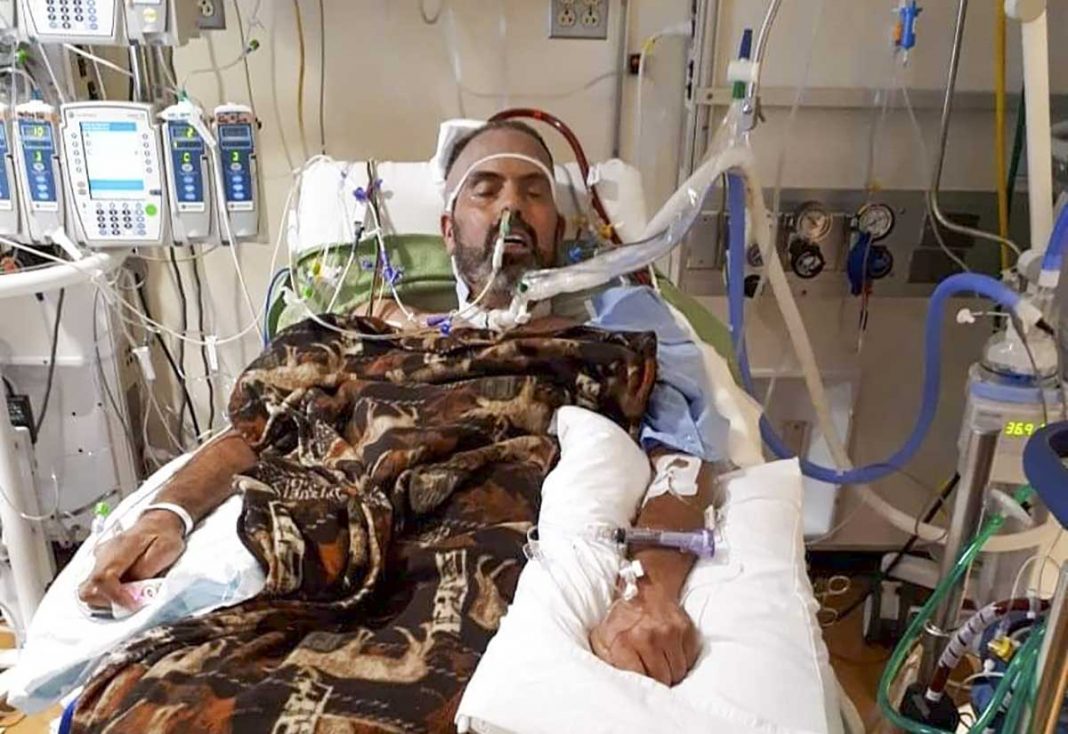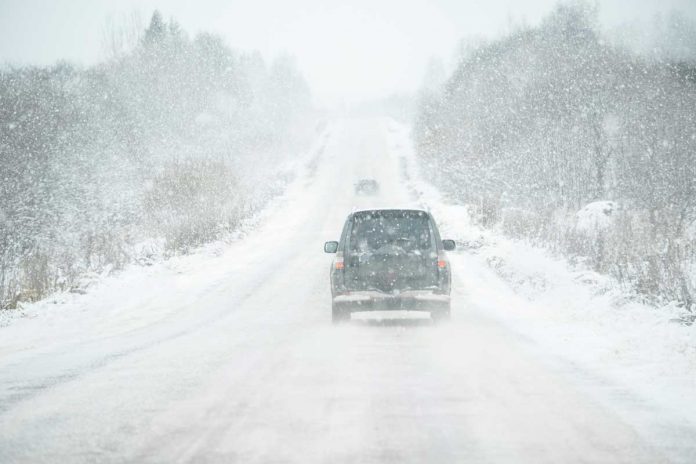Contracted disease while hunting on Manitoulin
WINDSOR – A Windsor man who contracted the disease blastomycosis and came close to dying said he is sure he got the disease while he was hunting on Manitoulin Island two years ago. In fact, he spent 195 days in hospital and is still dealing with the repercussions.
“I’ve been on a hell of a journey,” stated Will Sadowski in an interview with the Recorder. “I am part of a group that hunts every year on Manitoulin; I’ve been hunting for almost 20 years on Manitoulin. I’m pretty sure I got this disease two years ago after hunting on the Island. I just want other people to realize that if they have symptoms of blasto to get checked over by a doctor.”
“Everything happened after I had been deer hunting on Barrie Island. With blasto, infections are caused by being in contact with bogs, rotting wood, water, moist soil and decomposing mater such as leaves. People can get blasto after breathing in the microscopic fungal spores from the air,” Mr. Sadowski told the Recorder. “That year at our camp, there was so much water around; when we took our four-wheelers around the property we were completely in water. That is probably where I contracted the disease.”
“I had never heard of blastomycosis before. I got sick and was diagnosed with it,” said Mr. Sadowski. He said that in 2017, his hunt party had used all their tags on the second day of the annual Manitoulin Island deer gun hunt. “I came home and everything was fine. Then in April I started to have really bad back pain. The infection from blasto caused lesions on my back.”
“Then in October of last year (2018) I started to have flu-like symptoms,” said Mr. Sadowski. “Over three days, my health rapidly declined and things got worse really quickly,” he said, noting doctors put him on medications, but “after three days my wife had to take me to the hospital I couldn’t breathe. My wife is a nurse and she said oxygen levels should be at 97-100 percent, but I was at 79 percent. Anyway, after a half an hour in hospital (in Windsor) my condition had progressed so badly that they put me in an induced coma to give my body and lungs a rest. I was transferred to the Michigan State University Hospital and they put me on an ECMO machine, which takes the blood out, oxygenates it and put it back into a person’s body. While he was transferred from Windsor to Michigan State University Hospital flat-lined twice and had to be resuscitated, he told the Recorder.
“I was in the Intensive Care Unit for three months with 10 different test tubes in me to breathe and eat until I started to get better,” continued Mr. Sadowski. After this for about another two months, “I was put in a rehabilitation centre, I had to learn how to walk again.”
“I’m still dealing with all of this as we speak,” stated Mr. Sadowski. “My lung capacity is nowhere where it should be. I get shortness of breath very quickly–I can walk about 50 yards and then I have to stop.”
“The doctor in Windsor had dealt with blasto before, having seen one case of a human having the disease,” said Mr. Sadowski, who is 42 years old.
“I haven’t been able to work for the past couple of years,” said Mr. Sadowski, “but I’m going back to work soon.”

Manitoulin Island is an endemic area, susceptible to blastomycosis, a representative of Public Health Sudbury had told a meeting on Manitoulin last fall.
In 2018 there were 54 confirmed cases of blastomycosis in Ontario, two in the Manitoulin Island or PHSD area. “In 2019 there were 45 cases and three in our area,” the meeting was told.
Adam Ranger, (PHSD) environmental support officer provided an introduction to the disease, what it is, how you get it, what its symptoms are, where it can be found and how to protect yourself from it.
Blastomycosis is caused by a fungus, and you can get it by breathing in the fungus from the soil, by disturbing the soil or rotting vegetation. It can also be caused by the fungus getting into the skin through an abrasion in the skin. The disease is not spread from person to person or from pets.
“Because dogs are in such close proximity to the ground, and because they dig in the soil, they are 10 times more susceptible than humans to get the disease,” continued Mr. Ranger.
Blasto symptoms include coughing, shortness of breath, sweat, fever, fatigue, unwanted weight loss, muscular stiffness and pain, rash and skin lesions, the meeting was told.
Mr. Ranger said from the time someone is exposed to the disease it can take from three-and-a-half weeks to three-and-a-half months before symptoms show. A diagnosis is made by taking sputum or tissue samples.
The disease is treated with anti-fungal medications. “The initial anti-fungal medication is not too bad, but some anti-fungal medications can be some of the harshest medications there is.”
Blasto is found in areas like Manitoba, Ontario, Saskatchewan, Quebec, areas around the Great Lakes and the Mississippi River. It is difficult to test an area to see if it is present because it is hard to find in patches and in soils.
To protect yourself from blasto, Mr. Ranger said “activities that may put people at greater risk of exposure include being close to shorelines, hunting, trapping, gardening with shovels, clearing wet or rotten wood for example. Be aware of your activities and the area you are working in, and know the symptoms. If you feel ill, tell your doctor your symptoms and if you have been working in an area that may have blasto.” He said it’s important to wear protective work gloves, long sleeve shirts and pants, proper footwear in areas where you may be disturbing soil.
“There are medications out there that work,” said Mr. Ranger. “Be informed, know the symptoms and take reasonable precautions. And if you feel ill tell your health care provider that you may have contacted blasto.” Less than one percent of every 100,000 persons who come in contact with the disease have to spend any time in the hospital.
“My message to everyone is to be aware of your surroundings in the outdoors. And don’t shrug off getting a cold or flu. I was the same way. Don’t think it can’t happen to you. Swallow your pride and get checked out, it could save your life.”





